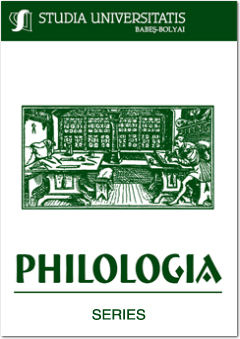LA CRITIQUE DE L’ÉTAT INEXISTANT : LE STATUT DE L’UTOPIE EN FRANCE DANS LA PREMIÈRE MOITIÉ DU XVIIE SIÈCLE
THE CONDEMNATION OF THE ABSENT COMMONWEALTH: THE STATUS OF UTOPIA IN FRANCE DURING THE FIRST HALF OF THE 17TH CENTURY
Author(s): Radu TodericiSubject(s): Language and Literature Studies
Published by: Studia Universitatis Babes-Bolyai
Keywords: utopia; early modern France; ideal society; political theory; Plato.
Summary/Abstract: The Condemnation of the Absent Commonwealth: the Status of Utopia in France during the First Half of the 17th Century. While Thomas More’s Utopia gave rise to numerous imitations during the 16th and early 17th centuries, eventually laying the foundations for a new literary sub-genre, its core political ideas were largely ignored by early modern political theorists or were mentioned only so far as they seemed to put forward in a new manner some of Plato’s radical political theories. So long as More’s ideal commonwealth was regarded as an imitation of Plato’s political model, both projects were criticized mainly for advocating common property and community of women and children. However, towards the end of the 16th century, a different argument was raised against utopia, from the standpoint of its practical utility. From Jean Bodin to Vincent Cabot and François de La Mothe Le Vayer, a theoretical distance separates the ideal commonwealth from the aims and purposes of mundane politics. Undoubtedly, this adverse attitude towards utopia served as a rhetorical strategy for legitimizing these authors’ approach to politics or, as in La Mothe Le Vayer’s case, for justifying his own skepticism towards it. Nevertheless, far from being only a commonplace, the rejection of utopia as pure theory may be also fitted into the context of early modern political theory; as such, this prevalent criticism of the ideal commonwealth coincides both with a shift towards absolute monarchy in French political treatises and with a rebuttal of the classical theory of the “mixed” government.
Journal: Studia Universitatis Babes-Bolyai - Philologia
- Issue Year: 57/2012
- Issue No: 4
- Page Range: 35-52
- Page Count: 18
- Language: French

